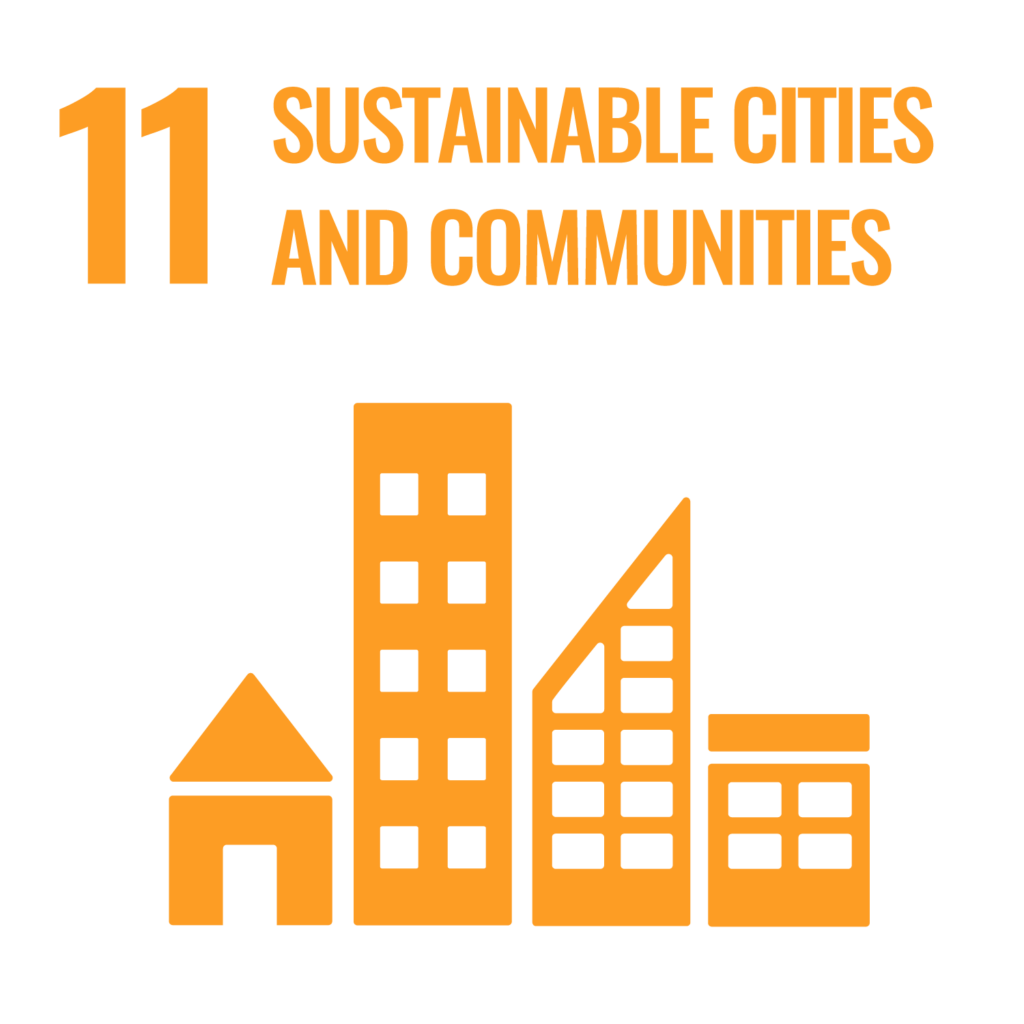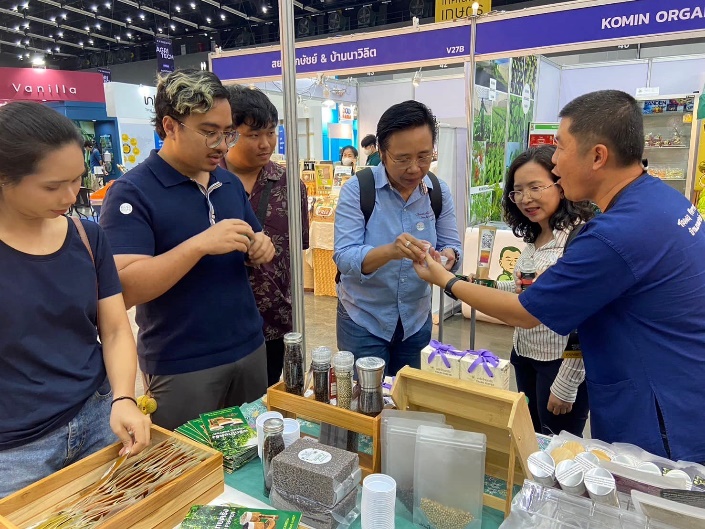Reporters: Dr. Jaray Suwannachart, Asst.Prof.Dr. Tachaya Sangkakool, Asst.Prof.Surawat Moogem and Tussawan Thong-on
Evidence Date: November 3, 2023
Related Indicators: 11.2.3
Details:
On November 3, 2023, Associate Professor Satinee Wattanakit, lead researcher, and Asst. Prof. Rohana Waedolo, research collaborator, from the Faculty of Architecture, spearheaded an initiative to design community learning pathways under the project “Community-Based Resources and Technology in Pa Khat Subdistrict.” This collaborative effort aims to develop sustainable, community-centric tourism and support local agricultural tourism in Singhanakhon District, Songkhla Province.
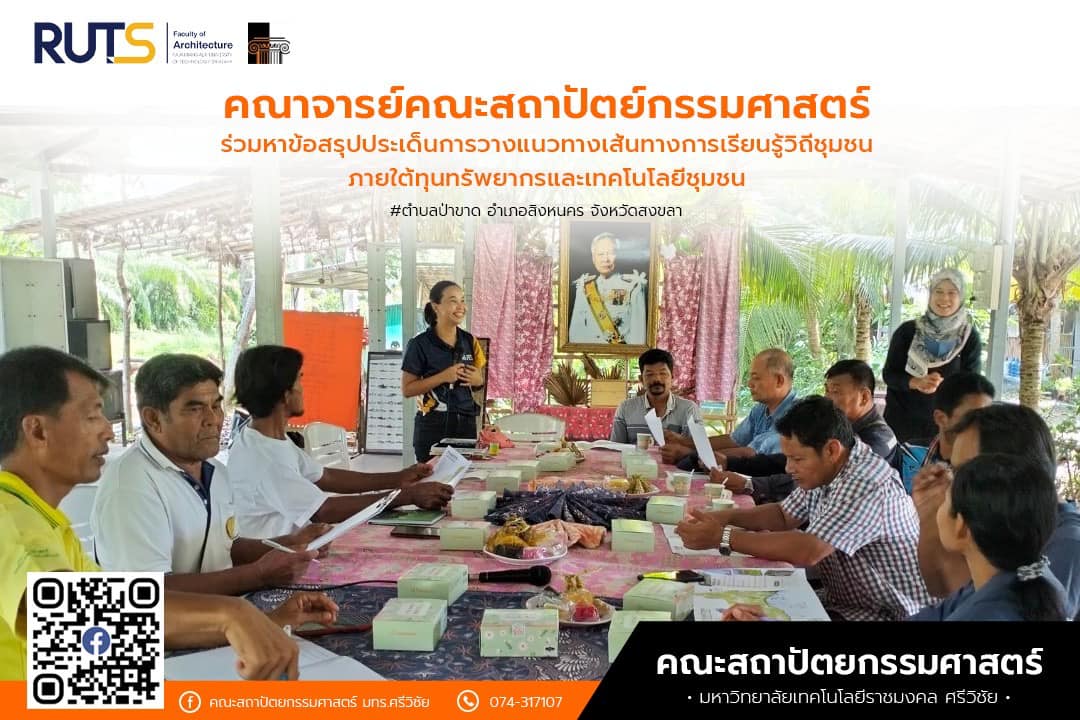
The team, along with key members of the Pa Khat Agricultural Tourism Group, including Chairman Thawornpol Thaweemuang and Charnwit Rattanachat from Tephaya Garden, worked closely to establish a framework that enhances local food security and agricultural markets. The group’s goals emphasize sustainable development through food production stability and community-based tourism, aligning with Sustainable Cities and Communities.
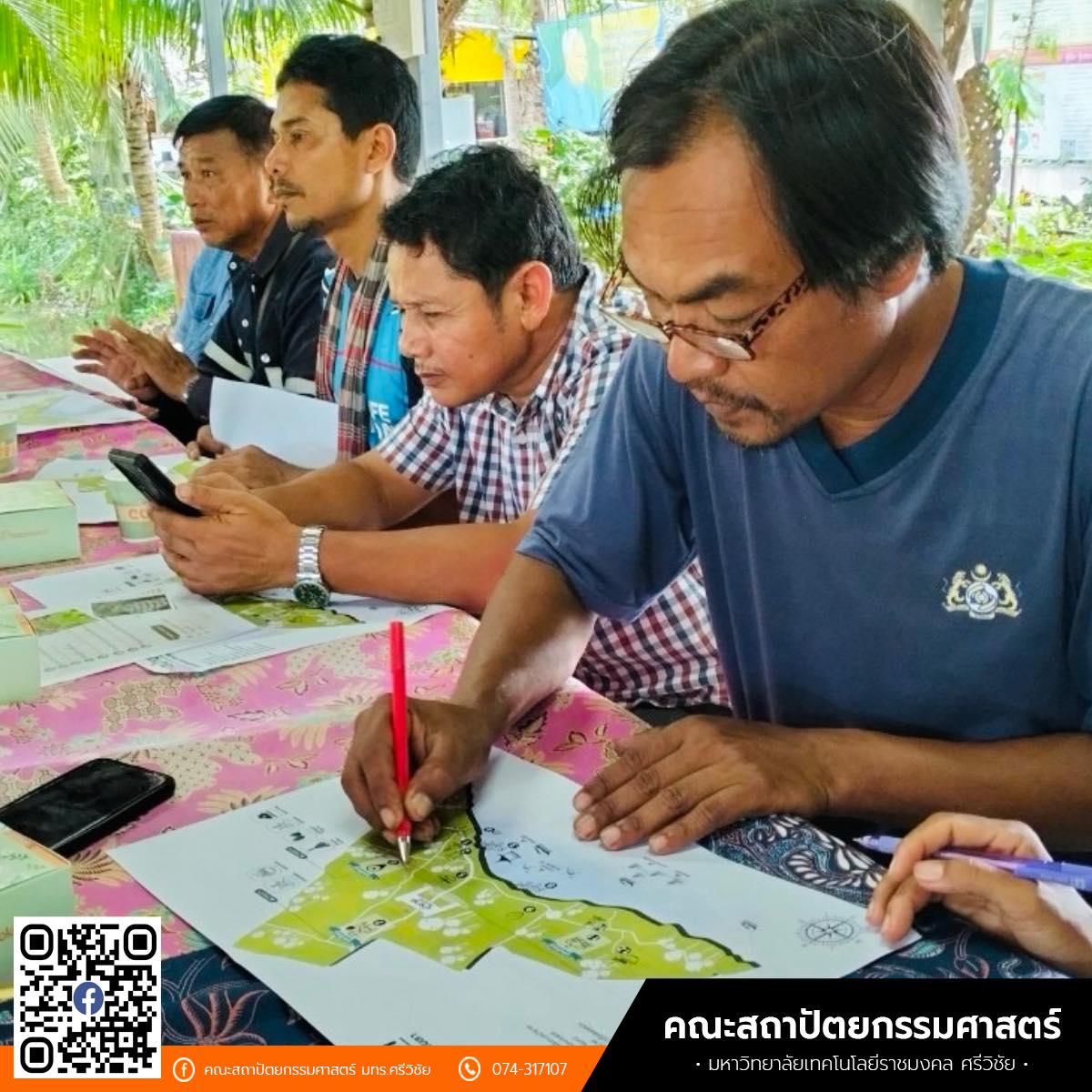
The project strengthens both economic resilience and cultural heritage within Pa Khat, transforming local resources into pathways for sustainable tourism. By incorporating local resources, the initiative highlights innovative strategies that bridge traditional practices with modern market needs, fostering a model for sustainable urban and rural linkages through tourism and agriculture.
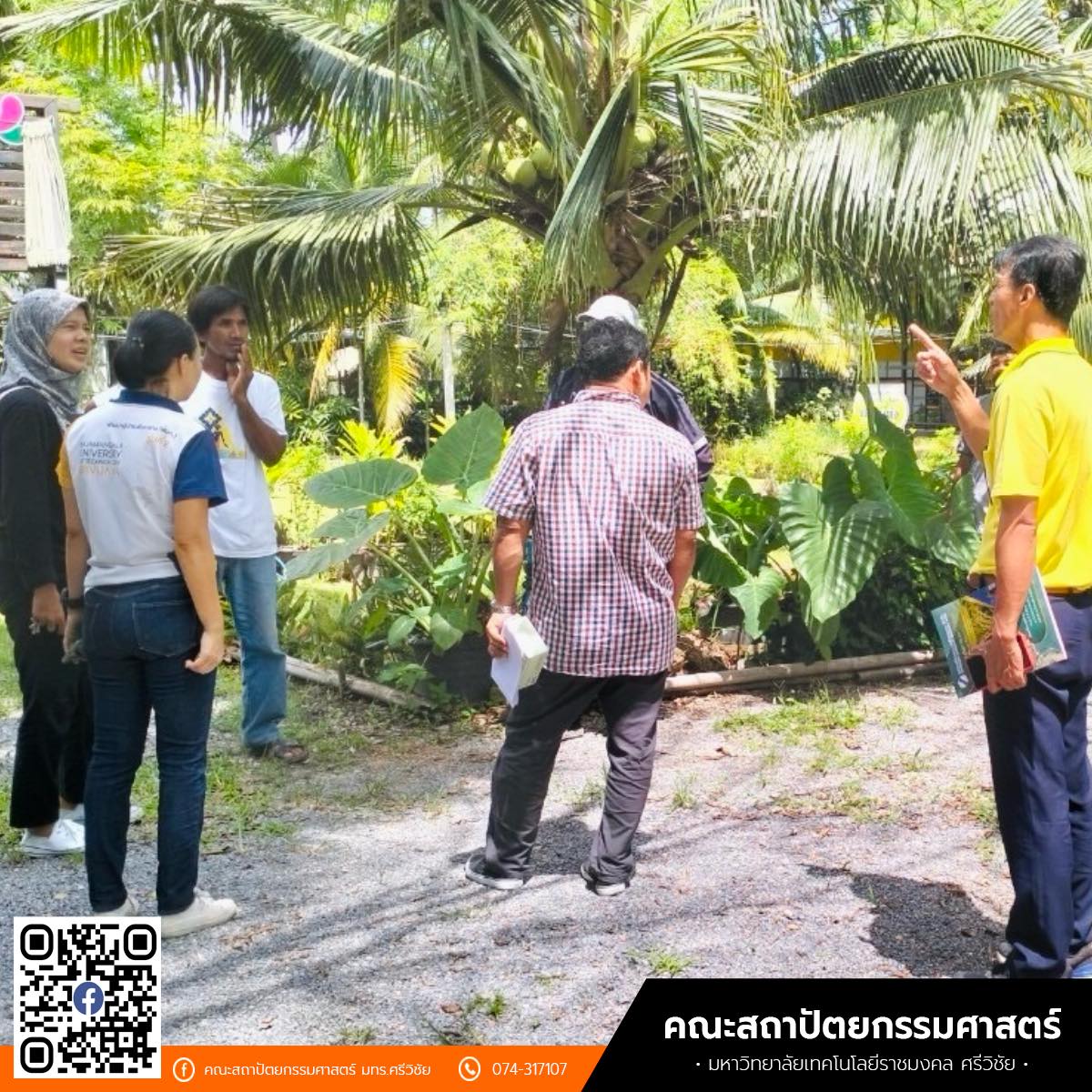
The Community Learning Path project in Pakhat Subdistrict is designed to elevate the area as an agritourism destination, directly benefiting local farmers and artisans through economic empowerment and job creation. By attracting visitors to engage with the unique agricultural practices and traditional crafts, this project boosts local incomes, creating new revenue streams that encourage sustainable growth. Additionally, by focusing on organic and low-carbon farming techniques, the project reinforces food security for Pakhat and establishes a model of eco-friendly agricultural practices that other rural areas could adopt, promoting resilience and environmental sustainability.
This initiative also fosters cultural preservation and environmental education by offering an interactive experience where visitors can learn about traditional and sustainable resource management. It aligns with Sustainable Development by promoting sustainable community-based tourism that preserves Pakhat’s cultural and environmental assets. The participatory design approach used in developing the learning path strengthens community pride and cohesion, as local stakeholders collaborate and share resources. Ultimately, the project positions Pakhat as a model for sustainable rural tourism, advancing the community’s economic, social, and environmental well-being.
Related Links:

